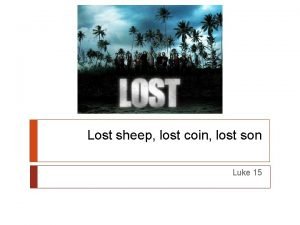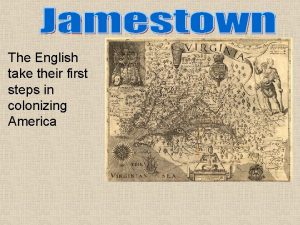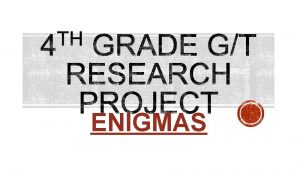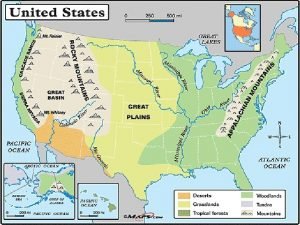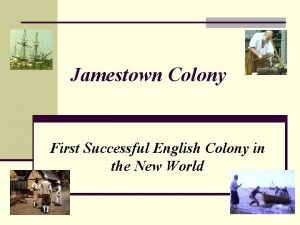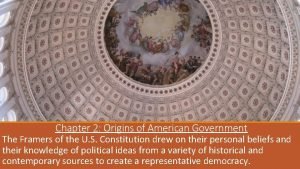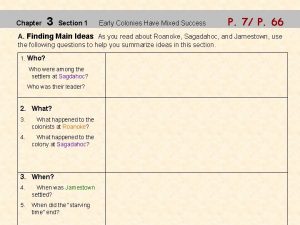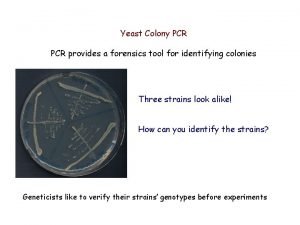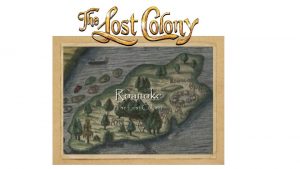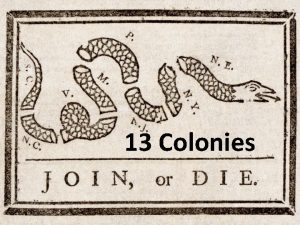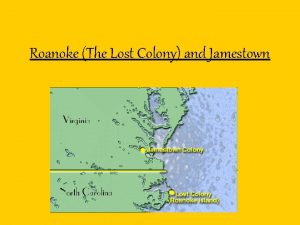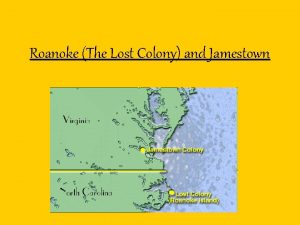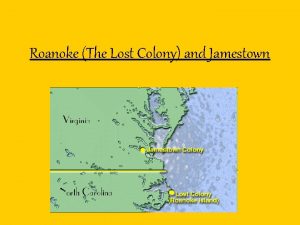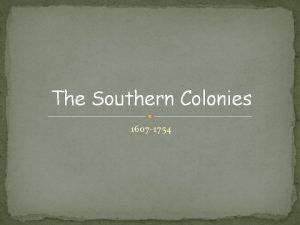English Exploration The 13 colonies The Lost Colony









- Slides: 9

English Exploration The 13 colonies

The Lost Colony of Roanoke In 1587 a group of 110 English colonist would sail for Roanoke, Virginia. Their leader would leave to sail back to England for supplies, only to return in 1990 to find that the colony had been abandoned and its colonist missing. To this day there is no explanation of what happened to the lost colony. Most likely they were over run by Indian tribes.

Joint-Stock Companies In a joint-stock venture, stock was sold to investors who provided capital. Companies granted charter had proven profitable in the past with trading ventures. Granted a charter by King James I in 1606, the Virginia Company was a joint-stock company created to establish settlements in the New World.

English Explorers John Cabot - In 1497 he explored the shores of Newfoundland, Nova Scotia, and Labrador. England claimed the whole east coast of North America because they claimed that Cabot was the first to reach the North American mainland. Sir Frances Drake – sailed around the world and was well known for attacking, thus weakening, Spanish ships. Attacks made by English sailors would lead to an attack made by the Spanish Armada and eventually open the way for safe English exploration in the New World. Henry Hudson – wanted to find a sea passage across North America to China, China discovered the Hudson Bay.

The 13 Colonies Jamestown, 1607 New York, 1626 Massachusetts Bay, 1630 New Hampshire, 1630 Maryland, 1634 Connecticut, 1636 Rhode Island, 1636 Delaware, 1638 North Carolina, 1653 New Jersey, 1660 South Carolina, 1670 Pennsylvania, 1682 Georgia, 1733



Tobacco Virginia New York 1607 Southern John Smith Anglican 1626 Massachusetts Bay 1630 New Hampshire 1630 Middle Peter Minuit New England New John Mason England Delaware North Carolina New Jersey South Carolina Pennsylvania Proprietary, then royal Puritan Corporate Puritan Mixed farming, furs Mixed farming, Religious freedom for Puritans fishing, shipbuilding Trade and profits Corporate, then Escape for those constricted by Mixed farming Puritan harshness led these settlers north and religious and economic rules inland. royal None Proprietary Religious freedom for Catholics Tobacco Founded by George Calvert. Slow growing (only 600 by 1650. Maryland Toleration Act (1649) New 1636 England Thomas Hooker Puritan Corporate Religious and economic freedom Mixed farming Leaders of Massachusetts asked Hooker and followers to leave. 1636 Roger Williams None Corporate None Proprietary 1638 1653 1660 1670 1682 New England Middle Peter Minuit Southern Group of proprietors Anglican Proprietary Middle Lord Berkeley None Proprietary Southern Group of proprietors Anglican Proprietary Middle William Penn None Proprietary Anglican Royal Religious freedom Mixed farming Trade and profits Religious freedom for Quakers; trade and profits Southern James Oglethorpe Debtor colony. Williams set up most tolerant colony Established by Sweden; taken by Dutch, then English. Trade and profits. Rice Mixed farming Rice Wheat, mixed farming Rice 1733 Georgia Led by John Winthrop. 18, 000 settlers by 1642 George Calvert 1634 Rhode Island None Trade and profits Middle Maryland Connecticut John Winthrop Royal Founded as joint-stock company. House of Burgesses (1619). Only 60 of 1 st 900 colonists survived. Set up as Dutch colony, taken over by English in 1664 Joint business venture Established by Sweden; taken by English in 1664 Rice major crop. Originally Quaker, this colony became home to many European immigrants Buffer for Spanish colonies Originally outlawed slavery and restricted size of land grants to 500 acres.

Demonstration of Learning Identify four reasons for English exploration and place them into the appropriate P. E. G. S. category. You will need to give one example for each category.
 Lost sheep lost coin lost son
Lost sheep lost coin lost son Map of the lost colony of roanoke
Map of the lost colony of roanoke The lost colony of roanoke
The lost colony of roanoke The lost colony of roanoke
The lost colony of roanoke What was the first permanent english settlement
What was the first permanent english settlement The first successful english colony
The first successful english colony First successful english colony
First successful english colony In 1643 four english colonies united as the
In 1643 four english colonies united as the How did the english finance their colonies after 1606?
How did the english finance their colonies after 1606? Colony pcr yeast
Colony pcr yeast
